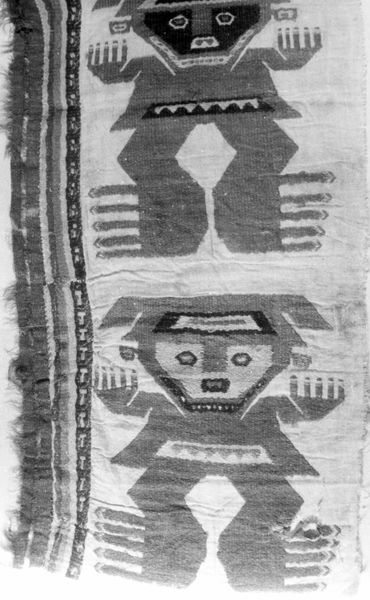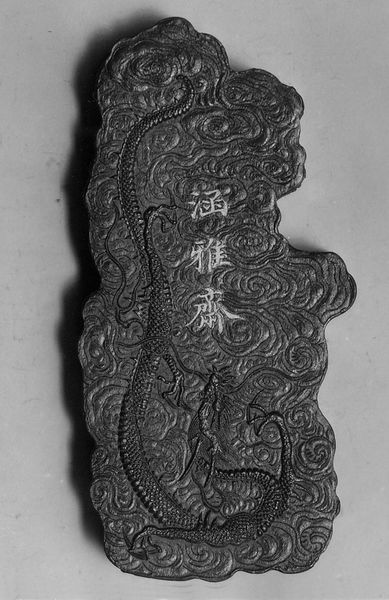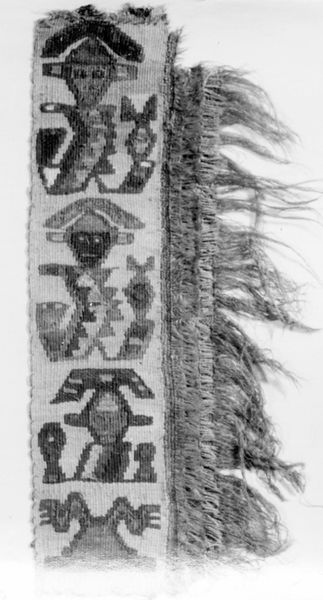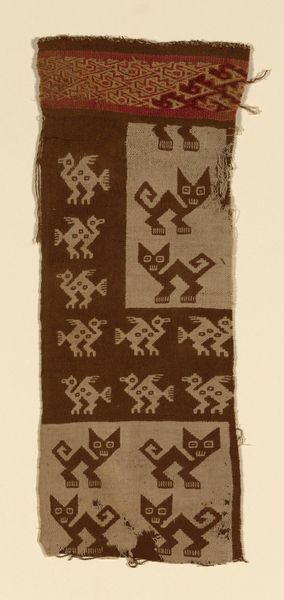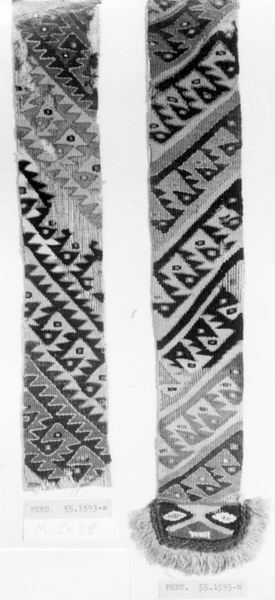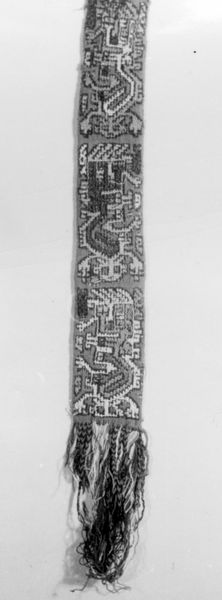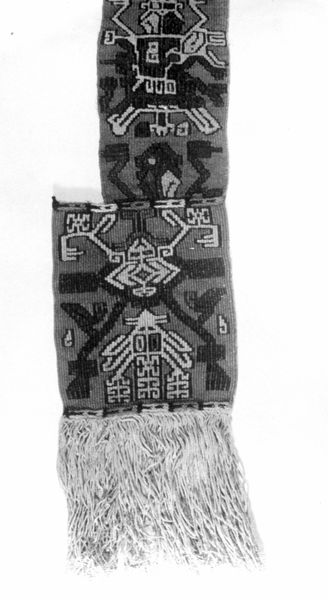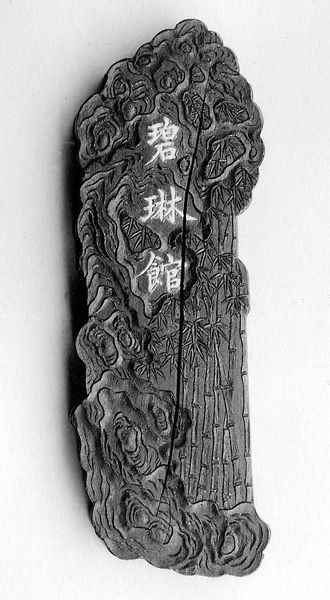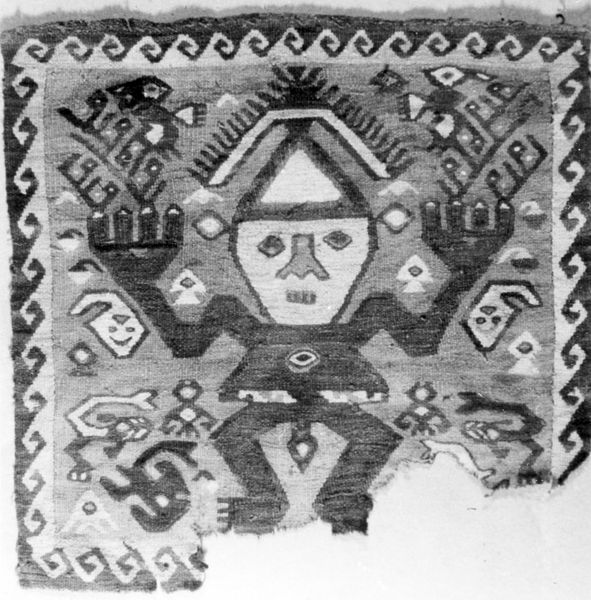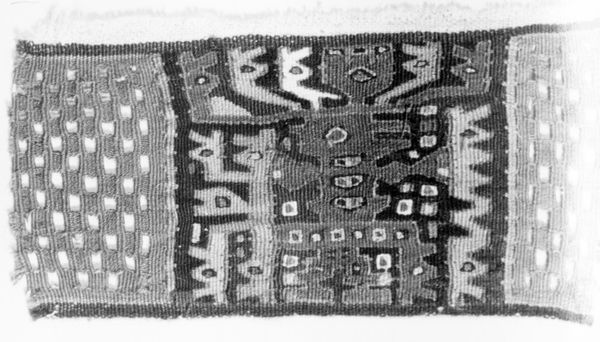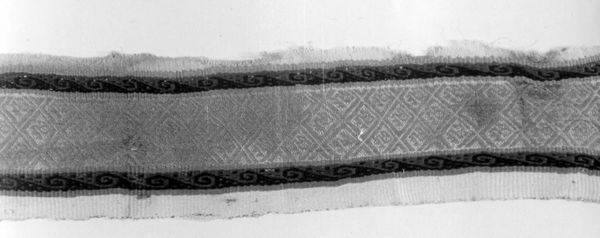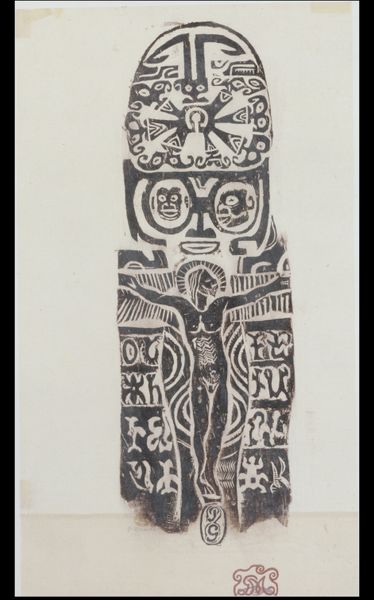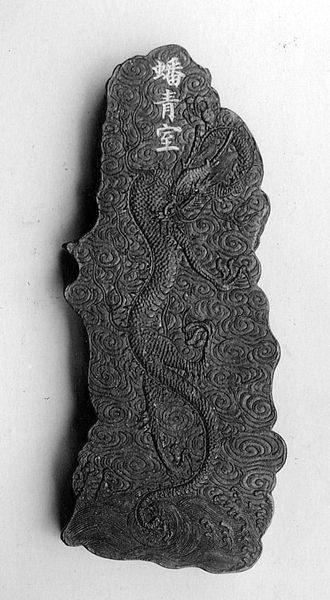
fibre-art, weaving, textile
#
fibre-art
#
sculpture
#
weaving
#
textile
#
figuration
#
geometric
#
black colour
#
black and white
#
indigenous-americas
Dimensions: 37.5 × 7.6 cm (14 3/4 × 3 in.)
Copyright: Public Domain
This woven band was made by the Rimac people, using fibers that were likely sourced locally. The process of creating this band involves multiple stages, from the cultivation or gathering of the raw materials, to the spinning of the fiber into thread, the dyeing of the threads with natural pigments, and finally the weaving itself. These would have been labor-intensive, time-consuming activities. The figures on the band—a bird at the top, a quadruped in the middle, an anthropomorphic figure in the middle, and a plant at the bottom—each required careful planning and skilled execution. The weaver would have needed to possess a deep understanding of the materials, techniques, and cultural meanings embedded in the weaving. In ancient Andean societies, textiles were not simply functional objects but were also potent symbols of status, power, and identity. This band, with its intricate designs and skilled craftsmanship, would have been a valued possession, reflecting the social and cultural significance of textiles in Andean society. It is a reminder that even the most seemingly humble objects can be rich with meaning and cultural significance, challenging our notions of what constitutes "high art."
Comments
No comments
Be the first to comment and join the conversation on the ultimate creative platform.
